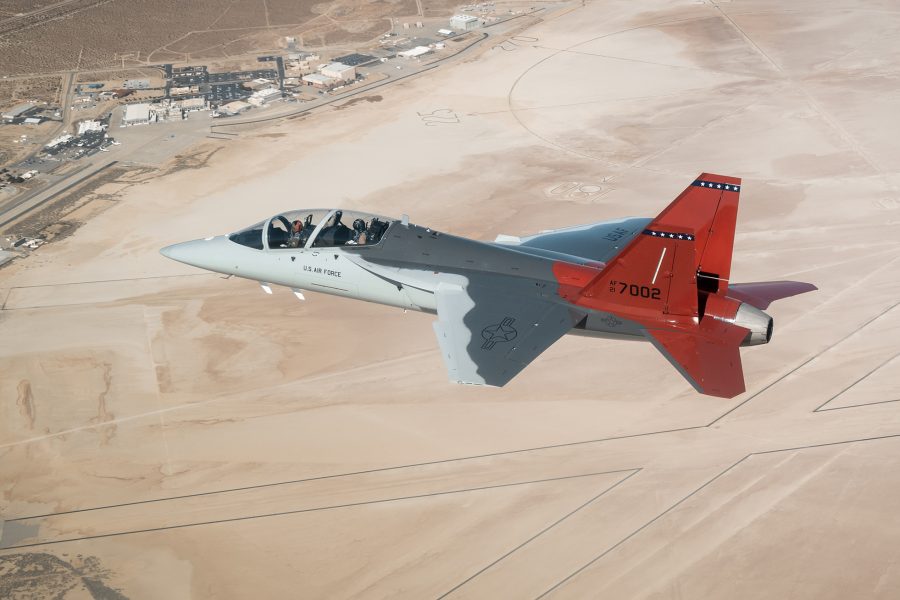Boeing’s defense programs saw huge losses in the past decade, but the company now says it’s got those issues under control and steadily improving its performance and approaching profitability. Boeing suffered no losses from defense programs in the most recent quarter, a welcome improvement from 2024 when the company lost $5.4 billion on defense.
“We’ve made real good progress,” said Boeing president and CEO Kelly Ortberg during the company’s April 23 first-quarter earnings call. Programs improving include the T-7 trainer, VC-25 presidential transport, KC-46 tanker and Starliner space capsule
“I think we’ve got all these programs now, well-contained,” he said. “I’m not claiming victory yet—we’ve got a lot of work to do…—but I do think our discipline, cost, risk management and active management with our customers to get to a win-win on these programs is helping.”
Boeing’s is stabilizing its fixed-price contracts as the programs mature. “This quarter results reflected stabilizing operational performance, and we remain focused on retiring risk each quarter and ultimately delivering these mission-critical capabilities to our customers,” Ortberg said.
Cracks discovered in KC-46 aileron hinges in February—which triggered a temporary hold on new tanker deliveries—were “identified…very quickly,” Ortberg said.
“It isn’t a safety-of-flight issue,” he said. “The population that they had to [repair] was small. The rework, they could get to that very quickly. So it really wasn’t a big deal.”
Since January when the Air Force and Boeing signed a Memorandum of Agreement on how to proceed with the T-7, the program has progressed, Ortberg said.
“We achieved the first two [Engineering and Manufacturing Development] performance milestones outlined in the MOA,” Ortberg said, “which continues to be an important example of how we are working with our customers to find better overall outcomes for both parties.”
Under the deal, the Air Force is buying four additional test aircraft—in addition to the five already accepted—that are of a “production representative” configuration, in order to accelerate the test program, already some two years behind schedule. The aircraft, bought with research and development money, will be delivered in fiscal 2026. Assuming no further substantive delays, the T-7 will be ready for operations in 2027, about four years later than originally planned.
Overall, Ortberg said, “the defense portfolio is well positioned for the future, and we still expect the business to return to historical performance levels as we continue to stabilize production, execute our development programs and transition to new contracts with tighter underwriting standards.”
The call was the first since Boeing won the F-47 Next-Generation Air Dominance fighter contract in March, but Ortberg said little due to government secrecy. “We’re not at liberty to disclose anything relative to the contract structure beyond what the Air Force has said,” Ortberg explained. The Air Force has said Boeing won the cost-plus contract on the basis of “best value.”
“Clearly we haven’t come off our strategy of ensuring we’re entering into the appropriate contract type for the appropriate type of work,” Ortberg said. In past years, Boeing was guilty of underbidding, but more recently the company has sworn off low-ball and fixed-price bids. Such gambles have cost the company at least $10 billion over the past decade.
“So, I wouldn’t worry that we’ve signed up to…undue risk, like we’ve done in some of our past fixed-price programs,” Ortberg said. “But that’s about all I can say on that right now.”
